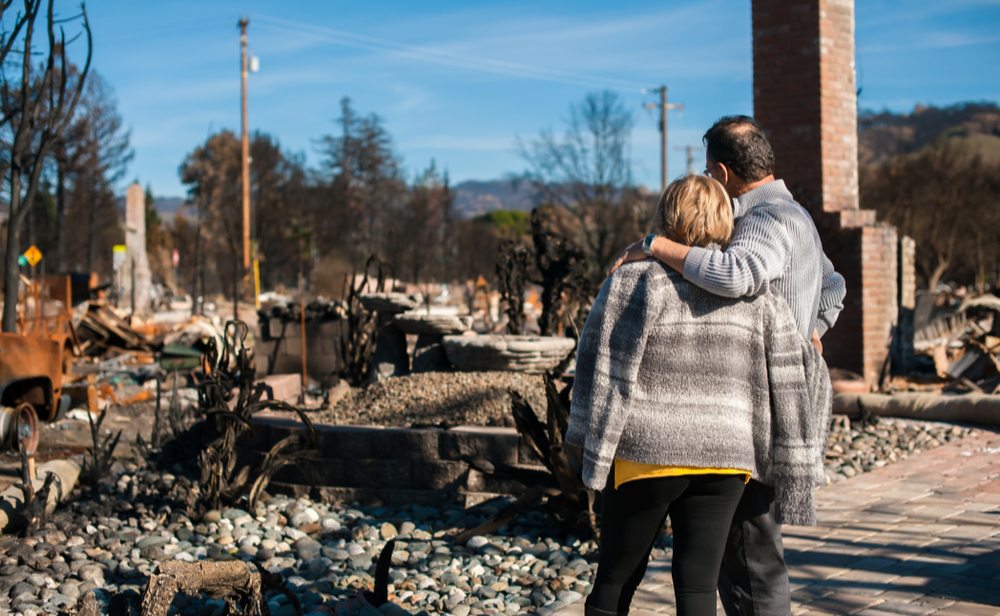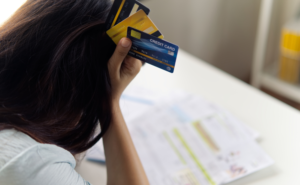The Impact of Natural Disasters on Credit Scores: What You Need to Know
You are not alone if a natural disaster has impacted you in recent years. According to the Insurance Information Institute, the number of weather-related natural disasters doubled between 1980 and 2018. Disasters aren’t only restricted to natural disasters like floods, wildfires, or tornadoes; state governors and the president can also proclaim a catastrophe in the wake of a terrorist attack or a disease epidemic, as was done in the aftermath of COVID-19.
But, what actually gets affected by natural disaster on credit report?
A natural or proclaimed disaster can influence your credit score by making it difficult to pay your bills and obligations or forcing you to rely on credit cards to make critical expenditures and the immediate harm it can bring to your health or livelihood.
Luckily, there are some measures you can take to avoid hurting your credit as a result of a disaster.
Table of Contents
How Does a Remark By a Natural Disaster Affect Credit Score?
A natural disaster can destroy your house, damage your belongings, and cause harm to you and your family. However, while you’re putting your life back together, a disaster can have many negative consequences on your credit score.
You may be unable to work if you are wounded or must take time off to care for injured family members. You might also be fired or have your hours or salary reduced. With your salary lowered, you may find it more difficult to keep up with your monthly debts, such as credit card debts, rent, energy bills, or mortgage payments. Your credit score may suffer as a result of missed payments.
You may need to use credit cards to pay for everyday needs to help you make ends meet. Even though your income is unaffected, a disaster will almost always result in additional costs. For example, if a flood or fire damages your house, you may be required to pay a large insurance deductible, hire a contractor to repair the damage, or even pay medical fees.
On a positive note, your credit cards may be able to pay these disaster-related costs and give a fast cash infusion. However, utilizing them will raise your credit utilization ratio or the proportion of your available credit that you are currently using.
Your 30% or more credit usage ratio will negatively impact your credit ratings. Preferably, you should try and pay off your credit card amounts in full each month or keep them as low as feasible.
Regardless of the potential negative implications of a disaster, there are actions you can take to protect your credit and keep your finances on firm ground.
What Can You Do For Your Credit During a Natural Disaster?
Various measures can be taken to prevent any damage to your credit score.
Keep Track of Your Credit Score
It’s a good idea to keep an eye on your credit after you’ve taken care of your and your family’s immediate requirements and start thinking about what it’ll take to return your life back to normal.
Sadly, robbers, identity thieves, and con artists frequently take advantage of tragedies to prey on individuals seeking assistance in rebuilding their credit scores. That’s why, in the aftermath of a disaster, it’s vital to keep an eye on your credit. Monitoring your credit report may help you avoid crimes like identity theft and unauthorized credit card use. It also helps in preserving your credit score.
Check your credit with each of the three main national credit agencies (Experian, TransUnion, and Equifax). Experian offers a free credit score as well as a free credit report. You can also get a free credit report from each national credit reporting organization once a week until April 20, 2022, due to the COVID-19 problem.
Dispute Errors
Keep an eye on your credit score frequently. The free credit tracking system from Experian makes it simple to receive warnings about any questionable behavior on your credit report.
Ask The Creditor For Remark Removal
The remark isn’t taken into account by FICO when computing your score. However, VantageScore ignores negative information from accounts with that code. Hence, you can request your creditor to remove it from your credit report.
However, some customers have experienced drawbacks. For example, in late 2017, a Texas couple stated they couldn’t get a loan to buy their leased automobile because a disaster remark applied after Hurricane Harvey caused lenders to assume it was flood-damaged. You can get the remark removed by contacting your lender, credit card issuer, or credit bureaus.
Monitor Your Credit During Recovery
According to Eric J. Ellman, senior vice president for public policy and legal affairs at the Consumer Data Industry Association, “customers should check their credit reports to see whether any missed payments have been recorded by their lender, even if they should have obtained forbearance of some type.” Contact the creditor or submit a dispute with the credit bureau if a missing payment has been recorded incorrectly.
Look out for remarks that say “affected by natural disaster” on credit reports. These remarks may be found in all three main credit bureaus: Equifax, Experian, and TransUnion.
Final Word
Whenever a disaster occurs, it doesn’t only affect life in general, and it also leaves an impact on your credit report as well. When disaster hits, your credit might be just as vulnerable as your home.
Your credit score may suffer if you skip a payment or your credit card balances rise when you need to borrow money. Not only can planning ahead help you rebuild, but it will also help you strengthen your finances in general. It will not be in vain if you put out the effort.
Keep an eye on your credit score as it is the main thing that gets affected by natural disaster on credit report. Keeping an eye on your credit score would help you a lot when you start rebuilding your credit score after a disaster hits.






